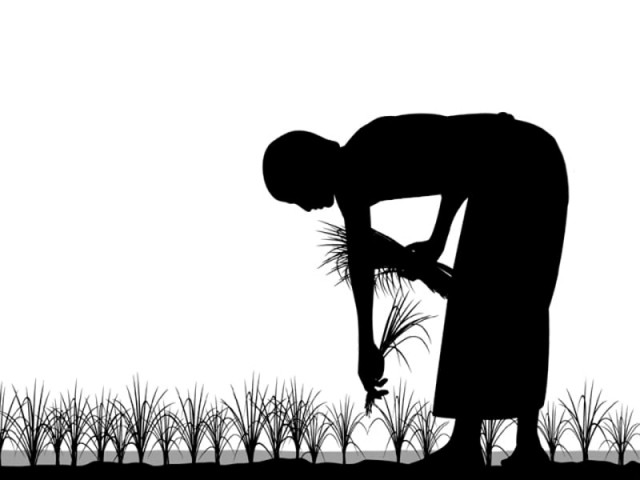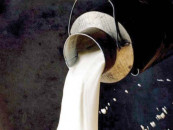Farmers demand end to water rotation system
The regime is under implementation since March and the growers claimed they have suffered losses in cultivated crops

The Sindh Abadgar Board (SAB), a group lobbying for farmers' rights, has complained that the irrigation water rotation is adversely affecting the agro economy as sowing in the ongoing Kharif season is just 30% of the same season in 2024.
A meeting of the board, chaired in Hyderabad by Mehmood Nawaz Shah on Sunday, pointed out that in the guise of the rotation water supply to specified channels is suspended for two to three weeks to the detriment of the crop cultivation.
The regime is under implementation since March and the growers claimed that they have already suffered losses in the cultivated crops like mangoes, sugarcane and vegetables. "The current severe shortage of water in the backdrop of the losses to the agriculture last year, due to falling commodity prices, and reduced production will take the agricultural economy further down."
According to the agriculturists, water released from the Chashma Barrage in Punjab on Sunday will take 15 days to reach to the irrigation network of Sindh and by the time it will be late to irrigation certain vital crops. They reiterated that under the mechanism of sharing water shortage on the basis of three-tier formula, the lower riparian province suffered far greater shortfall than Punjab.
They acknowledged that though water in the system was gradually enhancing, presently there was still a storage of around 2 million acre feet (MAF). The board also contended that even if the Indus River System Authority (IRSA) currently released water as per Sindh's indent, the backlog caused during the last two months of acute irrigation water scarcity cannot be recovered.
The farmers also lamented that due to indifference and poor support of the federal and the provincial governments, the cotton farmers are rapidly switching to other crops. As per the SAB, the growers are finding paddy, sugarcane and maize crops more promising than cotton.
The board pointed out that both sugarcane and paddy are water intensive crops while cotton not only consumed less water, it also provided raw material for ginning and oil extracting units; and helped the country save billions of dollars which are spent on cotton import for the textile sector.




















COMMENTS
Comments are moderated and generally will be posted if they are on-topic and not abusive.
For more information, please see our Comments FAQ